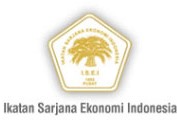Public Behaviour on Cash Waqf: Evidence from Indonesia
(1)
(2)
(3)
(4)
(5)
Abstract
Keywords
Full Text:
PDFReferences
Ab Rahman, A, (2009). The role of waqf in the economic development of Muslims and its application in Malaysia [Peranan wakaf dalam pembangunan ekonomi umat Islam dan aplikasinya di Malaysia]. Jurnal Shariah, 17, 113-152.
AbdulKareem, I. A., Ogunbado, A. F., AbdulGaniyy, A., & Mahmud, M. S, (2019). Factors Motivating the Establishment of Waqf Institution towards Poverty Alleviation among Muslim Ummah in Oyo State, South West, Nigeria. Jurnal Manajemen Bisnis, 32(1), 41-59.
Ajzen, I. (1991). The theory of planned behavior. Organizational Behavior and Human Decision Processes, 50(2), 179-211.
Ajzen, I. (2005). Attitudes, Personality, and Behaviour 2nd ed. New York: McGraw Hill.
Al-Harethi, A. R. S. (2019). Factors Determine Cash Waqf Participation in Kedah, Malaysia: Perception from Students in Kolej University Insaniah. Ikonomika, 4(1), 53-59.
Amalia, F. A., Sosianika, A. & Suhartanto, D, (2020). Indonesian Millennials’ Halal food purchasing: merely a habit?. British Food Journal, 122(4), 1185–1198.
Aziz, A., & Chok, N. V. (2013). The role of Halal awareness, Halal certification, and marketing components in determining Halal purchase intention among non-Muslims in Malaysia: a structural equation modeling approach. Journal of International Food and Agribusiness Marketing 25(1), 1-23.
Azizi, N. D., Shukor, S. A., & Sabri, H. (2019). Determinants Of Repeated Endowers’donation Intention In Cash Waqf: A Case Study In Majlis Agama Islam Dan Adat Melayu Perak (MAIPk). Jurnal Manajemen Bisnis, 10(2), 154-163.
Baqutayan, S. M., & Mahdzir, A. M. (2017). The psychology theories of waqf-giving behaviors. Journal of Economic and Social Thought, 4(4), 424-432.
Benjamin, M. (1990). Splitting the Difference: compromise and Integrity in Ethics and Politics. Kansas: University Press of Kansas.
Bennett, R., & Ali-Choudhury, R. (2009). Second-gift behaviour of first-time donors to charity: an empirical study. International Journal of Nonprofit and Voluntary Sector Marketing, 14(3) 161-180.
Bennett, R., & Gabriel, H. (2003). Image and reputational characteristics of UK charitable organizations: an empirical study. Corporate Reputation Review, 6(3), 276-289.
Burnett, K, (1992). Relationship Fundraising. London: White Lion Press.
Cizakca, M. (2000). A History of Philanthropic Foundations: The Islamic World From the Seventh Century to the Present. Istanbul: Bogazici University Press.
Doney, P. M., & Cannon, J. P. (1997). An examination of the nature of trust in buyer-seller relationships. The Journal of Marketing, 61(2), 35-51.
Einwiller, S. (2003). When reputation engenders trust: an empirical investigation in business-to-Consumer Electronic commerce. Electronic Markets, 13(3), 196-209.
Ganesan, S. (1994). Determinants of long-term orientation in buyer-seller relationships. Journal of Marketing 58(2), 1-19.
Hair, J. F., Black, W. C., Babin, B. J., Anderson, R.E., & Tatham, R. L. (2006). Multivariate data analysis (Vol. 6). New Jersey: Pearson Prentice Hall, Upper Saddle River.
Hamdan, H., Issa, Z. M., Abu, N. & Jusoff, K., (2013). Purchasing decisions among Muslim Consumers of processed halal food products. Journal of Food Products Marketing, 19(1), 54-61.
Hasbullah, N. A., Khairi, K. F., & Aziz, M. R. A. (2016). Intention to contribute in corporate waqf: Applying the Theory of Planned Behaviour. UMRAN-International Journal of Islamic and Civilizational Studies 3(1).
Indahsari, K., Burhan, M. U., Ashar, K., & Multifiah. (2014). Determinants of individual Muslim behaviour in accomplishing zakah, infaq, shadaqah and waqf through amil institution. International Journal of Economic Policy in Emerging Economies 7(4), 346-365.
Iranmanesh, M., Mirzaei, M., Hosseini, S. M. P., & Zailani, S. (2019). Muslims’ willingness to pay for certified halal food: an extension of the theory of planned behaviour. Journal of Islamic Marketing, 11(1), 14–30.
Jana, D., Sinha, A. & Gupta, A. (2019), Determinants of Financial Literacy and Use of Financial Services: An Empirical Study Amongst the Unorganized Sector Workers in Indian Scenario. Iranian Journal of Management Studies, 12(4), 657-675.
Johari, F., Alias, M. H., Shukor, S. A., Abd Wahab, K., Aziz, M. R. A., Ahmad, N., & Ibrahim, P. (2015). Factors That Influence Repeat Contributionof Cash Waqfin Islamic Philanthropy. Management & Accounting Review (MAR), 14(2), 55-78.
Johnson, B. R., Jang, S. J., Larson, D. B., & De Li, S. (2001). Does adolescent religious commitment matter? Are examination of the effects of religiosity on delinquency. Journal of Research in Crime and Delinquency, 38(1), 22-44.
Kahf, M. (1999). Financing the development of awqaf property. The American Journal of Islamic Social Sciences, 16(4), 39-66.
Kashif, M., Sarifuddin, S., & Hassan, A. (2015). Charity donation: intentions and behaviour. Marketing Intelligence and Planning, 33(1), 90-102.
Kuran, T. (2001). The provision of public goods under Islamic law: Origins, impact, and limitations of the waqf system. Law and Society Review, 35(4), 841-898.
Leedy, P., & Ormrod, J. (2001). Practical research: Planning and design (7th ed.). New Jersey: Merrill Prentice Hall.
Mahamood, S. M. (2006). Waqf in Malaysia: Legal and Administrative Perspective. Kuala Lumpur: Penerbit Universiti Malaya.
Mohamed Yusof, M. F., Hasarudin, M. H. & Romlin, N. (2017). Cash waqf and infaq: a proposed ephilanthropy in Malaysia. Jurnal Kemanusiaan, 22, 1-10.
Mustafa, M. O. A., Muslim, H. S. M., & Adnan, M. A. (2013). Antecedents of zakat payers’ trust in an emerging zakat sector: an exploratory study. Journal of Islamic Accounting and Business Research, 4(1), 4-25.
Ong, F. S., & Moschis, G. P. (2006), Religiosity and consumer behavior: a crosscultural study. International Conference on Business and Information, 3, 1-13.
Osman, A. F., Mohammed, M. O., & Fadzil, A., (2016). Factor influencing cash Waqf giving behavior: A revised theory of planned behavior. Journal of Global Business and Social Entrepreneurship, 1(2), 12-25.
Osman, A. F., & Muhammed, M. O. (2017). Measuring a Cash Waqf Giving Behavior among Muslim Donors in Malaysia: A Theory of Planned Behavior Approach Using Structural Equation Modeling. The Journal of Muamalat and Islamic Finance Research, 204(5775), 1-25.
Rahman, A. A., Asrarhaghighi, E., & Rahman, A. S. (2015). Consumers and Halal cosmetic products: knowledge, religiosity, attitude and Intention. Journal of Islamic Marketing, 6(1), 148-163.
Ratnasari, R. T., & Arifin, M. H. (2017). Theory of planned behavior in intention to pay cash waqf.
Sadeq, A. M. (2002), Waqf, perpetual charity and poverty alleviation. International Journal of Social Economics 29(1/2), 135-151.
Said, N. M., & Saad, R. A. J. (2016). Determinants of hibah giving behavior. The European proceedings of social & behavioural sciences (EpSBS), 437-442.
Seong-Gin, M., 2017. “The effect of trust in giving: evidence from Korean-Americans in California”. The Korean Journal of Policy Studies 32(1): 53-70.
Shukor, S. A., Johari, F., Abd Wahab, K., Kefeli, Z., Ahmad, N., Alias, M. H., & Abu-Hussin, M. F. (2018). Trust on awqaf institutions: evidence from Malaysia. Journal of Islamic Marketing, 10(2), 511-524.
Shukor, S. A., Anwar, I. F., Sabri, H., Abd Aziz, S., & Ariffin, A. R. M. (2017). Giving Behaviour: Who Donates Cash Waqf. Malaysian Journal of Consumer and Family Economics, 87-100.
Smith, J. R., & McSweeney, A. (2007). Charitable giving: the effectiveness of a revised theory of planned behaviour model in predicting donating intentions and behaviour. Journal of Community and Applied Social Psychology, 17(5), 363-386.
Vanany, I., Soon, J. M., Maryani, A., & Wibawa, B. M. (2019). Determinants of halal-food consumption in Indonesia. Journal of Islamic Marketing, 11(2), 507–521.
Wahbah, Z. (1985). Al-Fiqh al-Islamiy wa ‘adillatuhu’. MesirL Dar al-Fikr al-Mu’ashir.
Yusoff, R., Abd Rahman, S. A., & Wan, W. N. (2017). Predicting the Behavioural Intention for Cash Waqf: Evidence from Malaysia and Thailand.
Zabri, M. Z. M., & Mohammed, M. O. (2018). Examining the behavioral intention to participate in a Cash Waqf-Financial Cooperative-Musharakah Mutanaqisah home financing model. Managerial Finance, 44(6), 809-829.
Zain, N. H. M., Muda, M., & Rosman, R. (2019). Personality Factors Influencing Intention on Cash Waqf Behavior. International Journal of Business, Economics and Law, 18(2), 23-30.
Zou, S., & Fu, H. (2011). International Marketing and Emerging Markets: An Introduction to the AIM Volume 21, in Zou, S. and Fu, H. (Ed.) International Marketing (Advances in International Marketing, Vol. 21), Bingley: Emerald Publishing.
Refbacks
- There are currently no refbacks.

This work is licensed under a Creative Commons Attribution 4.0 International License.







